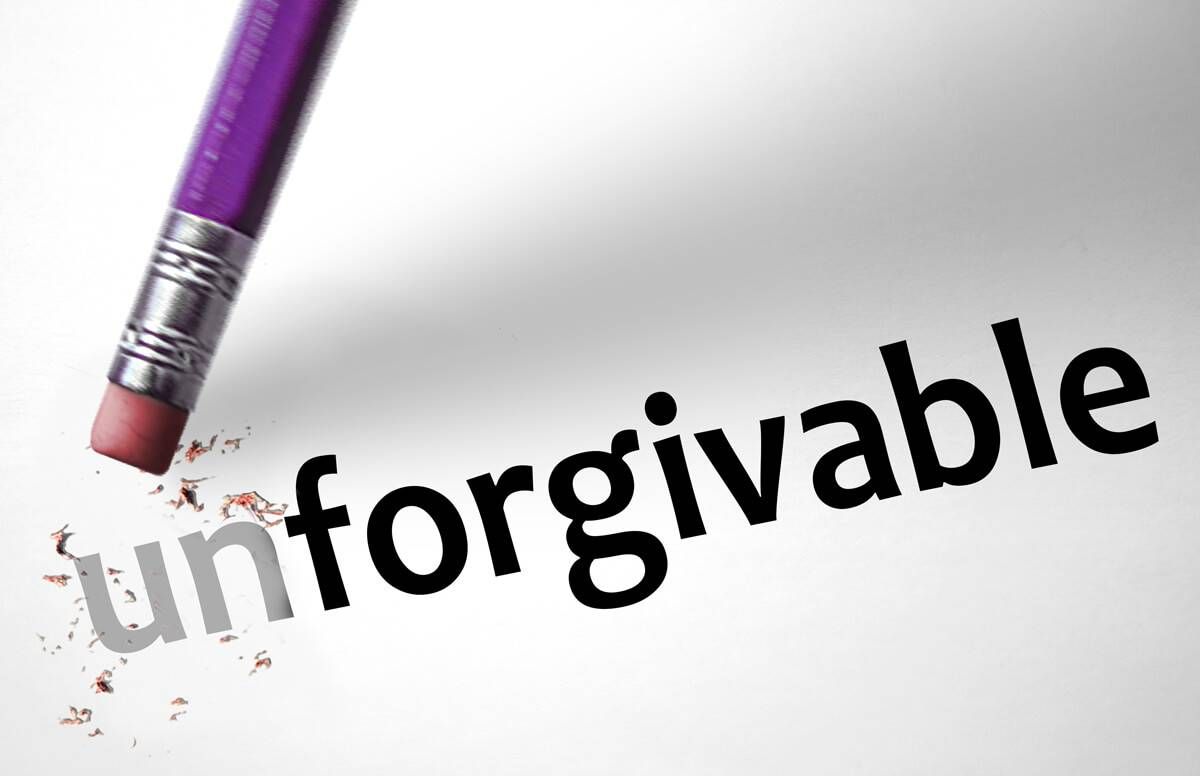The Impact of Forgiveness
This author says it's easier to express love than hold on to anger
(Excerpted from More Beautiful Than Before: How Suffering Transforms Us)

My high school friend Neal’s grandfather had a simple way of summing up forgiveness that I think about a lot every year as Yom Kippur, the Jewish Holy Day devoted to forgiveness, approaches. He put it this way: “What was was, what is is and that’s that.”
Imagine if we all had families where we could be satisfied with that — where we could say, “I’m sorry. I made a mistake. Please forgive me,” and it would really, truly end there. Apology accepted.
“Ah,” I sometimes hear back from those who have been deeply hurt by a loved one, “but Rabbi, you don’t know what she did! Don’t you realize how he betrayed me? Have you any idea how malicious and vicious she is? Do you know what he said? Do you know what she claimed? This forgiveness stuff is all well and good. But you have no idea. I cannot and I will not forgive.”
To this I can only respond, “What about you? Are you so perfect? Have you never slammed a door in anger or shot a hurtful word like an arrow from your lips? Have you never wounded another you claimed to love? How can you come before God or another human being seeking that which you are unwilling to grant another?”
To Forgive, But Not Forget
“Whose sin is forgiven?” ask the sages. “The sin of the one who forgives a sin committed against him.” Yes, the person seeking our forgiveness must be truly sorry and truly committed to never repeating the sin, but if that’s the case, we are obligated to forgive. To forgive mind you, but not to forget. Where is it written that you must forget? Forgiveness does not ask of us amnesia. No one expects forgiveness to eliminate the memory of the offense. But it can diminish the pain.
One sage explained that sin is like pounding nails into a wooden chest. Repentance and forgiveness are like pulling the nails out. The nail may be removed but the hole remains. Forgiveness does not undo the past, but it does make a different future possible.
Type, Pass, Wait, Receive
My friend’s sister Ali taught me a lot about letting go of anger. Ali was a beautiful airline flight attendant who loved her life of travel — packing snow boots and a bikini for the same trip because she could find herself in Alaska one day and Hawaii the next. All of that stopped when she was diagnosed with a rare cancer of the nasopharynx, which is the area behind your nose and at the top of your throat. Bouts of cancer surgeries and radiation left Ali unable to speak, hear or eat. She had a tracheotomy in order to breathe and was paralyzed on the right side of her face.
I visited Ali every week or so for more than a year as her health declined. We communicated by passing a laptop back a forth. There was something very deliberate, delicate and powerful about communicating that way. I would type and pass the laptop to Ali, then wait. She would take a deep breath through her trach, and I would listen to the click of keys while she wrote back to me. Then I would read what she wrote, think, wait and write back with the clicking keys completely silent to her. The laptop was passed like an offering from me to Ali, then Ali to me. Type, pass, wait, receive, read; type, pass, wait, receive, read; type, pass, wait . . .
We talked about many aspects of pain, suffering, fighting to live and why even paralyzed and silent, without eating or music, life mattered. We were working on a book of our conversations together before she died at the age of 46 after suffering a stroke while undergoing yet another surgery.
Anger Is a Lot of Work
During one of our laptop chats, I asked Ali if she was angry about being deaf, mute and partially paralyzed. Here’s what she wrote:
“Yes, I get angry. I don’t like being treated like a child just because I can’t speak or hear. I hate what has happened to me. But I do not stay angry because it is so difficult to express anger without words. It’s much easier to express love. All I have to do is smile and look at my friend or my sister . . . all I have to do is hold her hand or put my arm around her, or laugh when we’re talking. I can easily mouth, “I love you,” with no voice . . . and the feeling comes through; you don’t really need a voice for that. But anger is different. Anger is a lot of work.”
Could it be that what Ali was teaching — she who was without words or sound — was that we are better suited, more naturally inclined, better meant to express love rather than anger? Could it be that we were not really meant to punish each other for our mistakes and our angry words, that our future really can be different than our past?
Ali is right. Anger is a lot of work. Neal’s grandfather was right too. So pull out the nails that have pierced your family and your friendships. Pull out the nails that have torn you and your loved ones apart. Pull out the nails and forgive. Because without forgiveness, love dies. And that’s that ...

